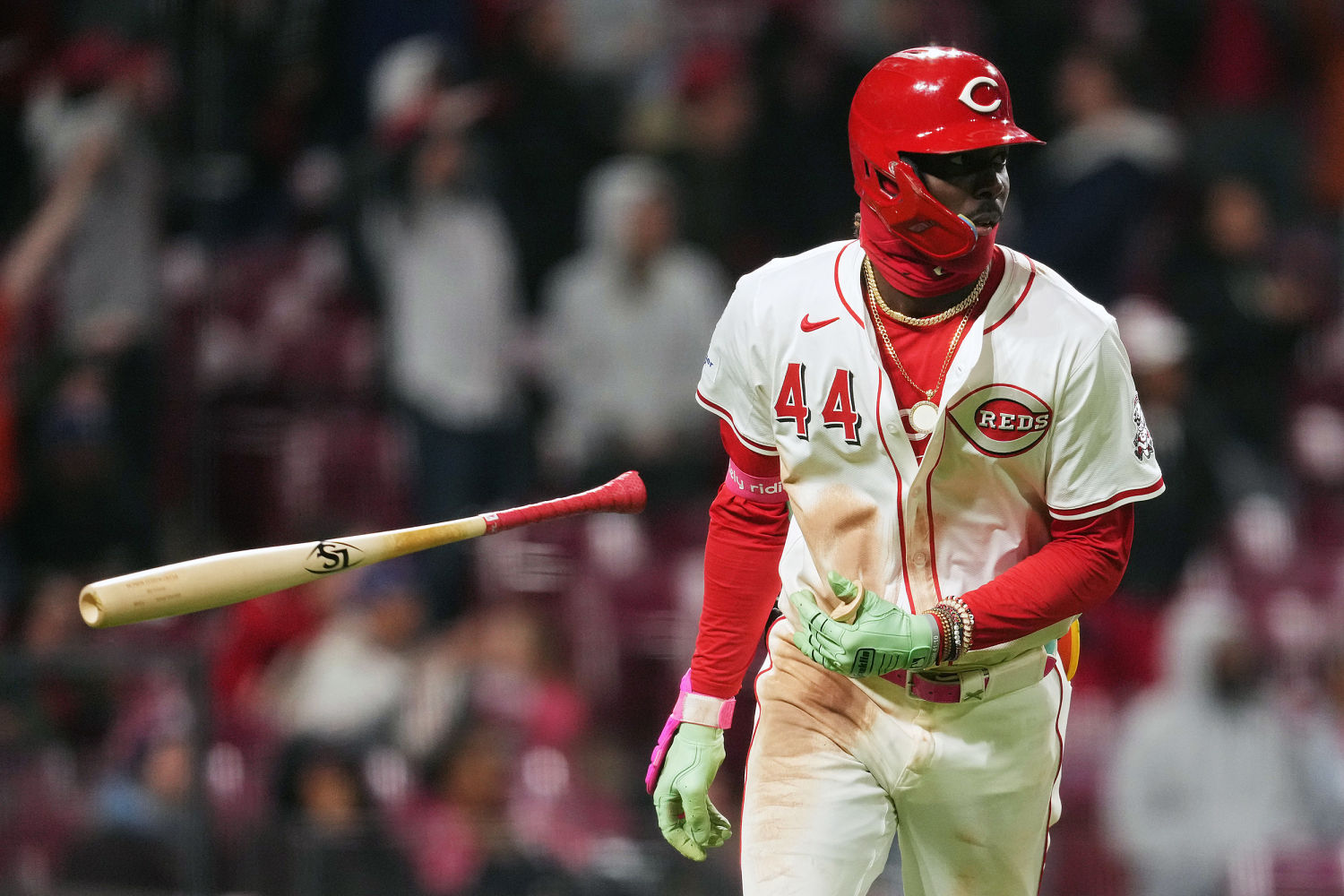The "torpedo bat" trend in baseball has taken over the internet and permeated clubhouses all over Major League Baseball as players and fans try to quickly learn what it is.
The torpedo bats, which are legal and follow MLB’s strict bat guidelines, put more of the bat’s wood and move it from the handle and shaft into the barrel. The process, in theory, would allow players to make more contact with the barrel — or "sweet spot" — at the point of contact.
But let’s get something straight. The hype around torpedo bats being the ultimate tool for hitters is premature. The talk around the equipment makes it sound like players are out there using -3 aluminum bats like college hitters. The reality is not even close to that.
After one week of games, there’s not nearly enough data to jump to conclusions about the effectiveness of torpedo bats compared to your standard bat. Most players just began using torpedo bats this spring, though a select few, including Yankees slugger Giancarlo Stanton, tried them out late last season. We’ll need the better part of a full season of batted-ball data before we’ll be able to draw any meaningful conclusions about these bats’ impact.
Also, bat customizations have been happening for years, with hitters around baseball making changes to help them feel comfortable. In recent years, we’ve seen several changes to bat handles, including the axe handle popularized by Mookie Betts, the hockey puck knob/counterweight handle and even some players, like Mets second baseman Jeff McNeil, not using a knob at all.
Here's a look at Jeff McNeil's unusual bat, which does not have a knob. Although it's a standard 32 ounces, McNeil says the model feels lighter to him because the weight is more evenly distributed. pic.twitter.com/4rZybaBMp4
— Anthony DiComo (@AnthonyDiComo) August 4, 2018
Some hitters make such changes because they think it will help them get the bat in the strike zone more quickly, others simply because they feel more comfortable. ...
